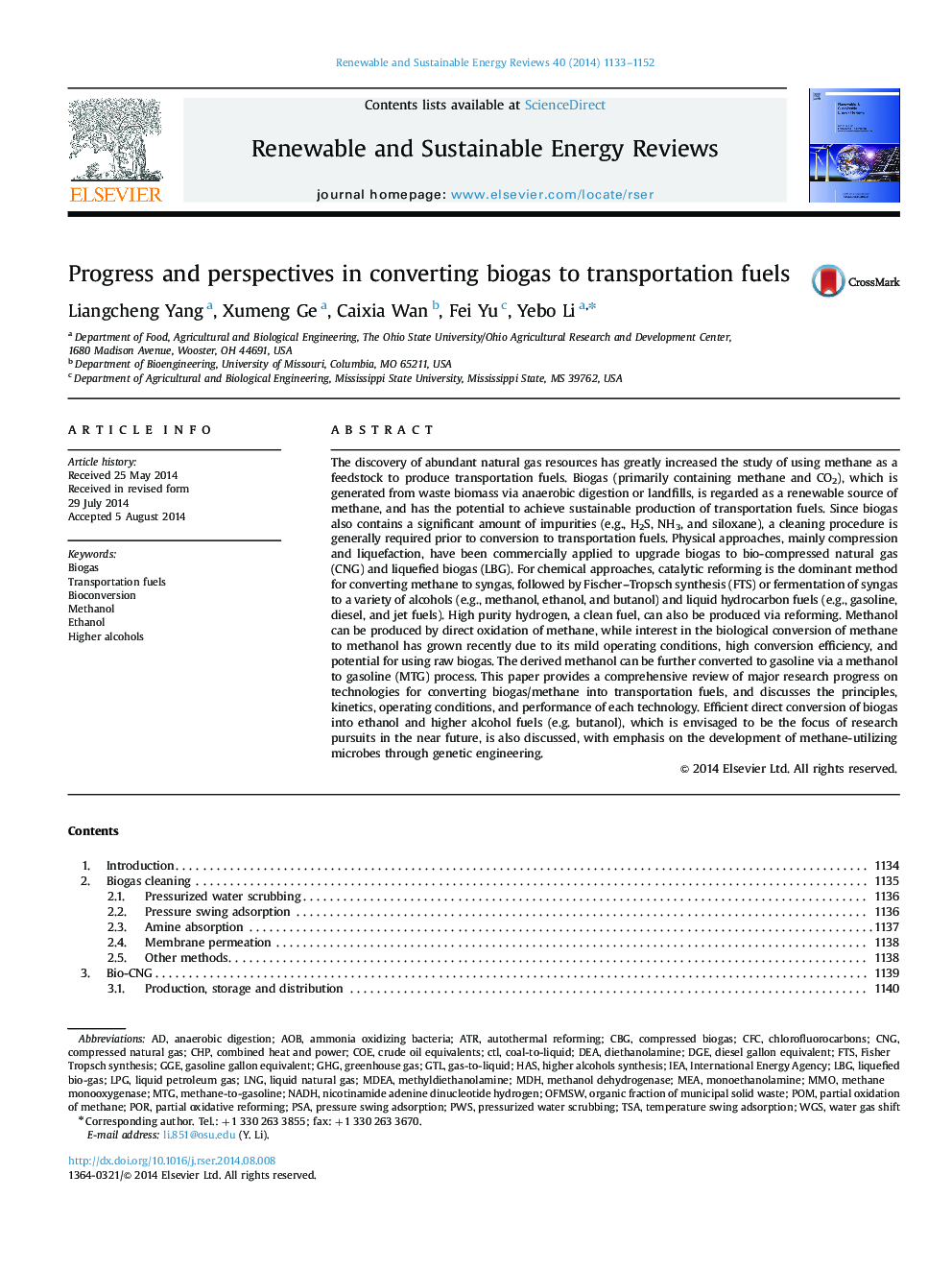| Article ID | Journal | Published Year | Pages | File Type |
|---|---|---|---|---|
| 8119206 | Renewable and Sustainable Energy Reviews | 2014 | 20 Pages |
Abstract
The discovery of abundant natural gas resources has greatly increased the study of using methane as a feedstock to produce transportation fuels. Biogas (primarily containing methane and CO2), which is generated from waste biomass via anaerobic digestion or landfills, is regarded as a renewable source of methane, and has the potential to achieve sustainable production of transportation fuels. Since biogas also contains a significant amount of impurities (e.g., H2S, NH3, and siloxane), a cleaning procedure is generally required prior to conversion to transportation fuels. Physical approaches, mainly compression and liquefaction, have been commercially applied to upgrade biogas to bio-compressed natural gas (CNG) and liquefied biogas (LBG). For chemical approaches, catalytic reforming is the dominant method for converting methane to syngas, followed by Fischer-Tropsch synthesis (FTS) or fermentation of syngas to a variety of alcohols (e.g., methanol, ethanol, and butanol) and liquid hydrocarbon fuels (e.g., gasoline, diesel, and jet fuels). High purity hydrogen, a clean fuel, can also be produced via reforming. Methanol can be produced by direct oxidation of methane, while interest in the biological conversion of methane to methanol has grown recently due to its mild operating conditions, high conversion efficiency, and potential for using raw biogas. The derived methanol can be further converted to gasoline via a methanol to gasoline (MTG) process. This paper provides a comprehensive review of major research progress on technologies for converting biogas/methane into transportation fuels, and discusses the principles, kinetics, operating conditions, and performance of each technology. Efficient direct conversion of biogas into ethanol and higher alcohol fuels (e.g. butanol), which is envisaged to be the focus of research pursuits in the near future, is also discussed, with emphasis on the development of methane-utilizing microbes through genetic engineering.
Keywords
HASDEATSAATRAOBIEAPSAPWSMTGWGSPOMGTLOFMSWCBGMDHPORMMOFTSDGEGGEMDEACFCMEALBGLPGGHGCHPCTLCNGLNGInternational energy agencyEthanolHigher alcoholsPartial oxidation of methaneAmmonia oxidizing bacteriaBiogasBioconversionCombined Heat and PowerWater Gas ShiftTemperature swing adsorptionpressure swing adsorptiondiethanolamineAutothermal reformingCoal-to-liquidHigher alcohols synthesisTransportation fuelsmethane monooxygenaseMethanolMethanol dehydrogenasemethyldiethanolamineMonoethanolamineNADHnicotinamide adenine dinucleotide hydrogenAnaerobic digestionCoeorganic fraction of municipal solid wasteChlorofluorocarbonsGas-to-liquidcompressed natural gasLiquid petroleum gasliquid natural gasGreenhouse gas
Related Topics
Physical Sciences and Engineering
Energy
Renewable Energy, Sustainability and the Environment
Authors
Liangcheng Yang, Xumeng Ge, Caixia Wan, Fei Yu, Yebo Li,
